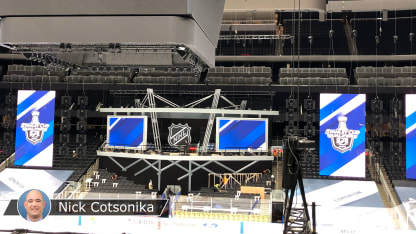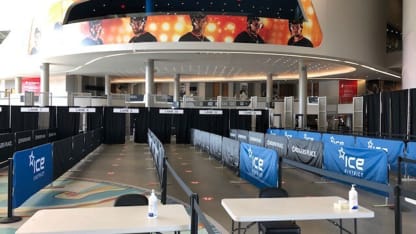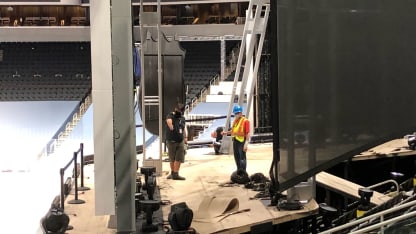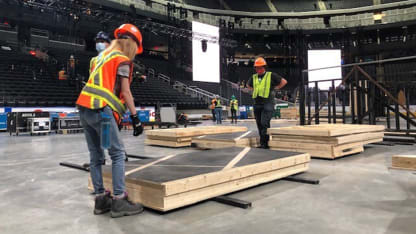Amid the coronavirus pandemic, which paused the season March 12 and has disrupted society around the world, the NHL is coming back with its largest, most complex event ever. From scratch, on the fly, in a matter of weeks, it is creating a completely new way of competing, living and viewing while keeping everyone safe.
The NHL is staging an unprecedented 24-team tournament in Edmonton and Toronto, starting Aug. 1 and ending as late as Oct. 4. It is making teams and staff comfortable while restricting them to Secure Zones and requiring them to follow strict protocols. It is overhauling the game presentation without fans in the stands.
RELATED: [Stanley Cup Qualifiers schedule]
The hurdles are immense, the details countless. The NHL is making the best of a bad situation. No, wait. That's an understatement. The goal is to transform a bad situation into something spectacular -- creative, different and made-for-TV, and yet worthy of the tradition the Stanley Cup.
"This is unheard of," said NHL chief content officer Steve Mayer, who oversees the production and has been in Edmonton for 11 days already. "It's an awesome challenge. Every one of us is just welcoming it. You know, like, 'bring it on' is the general call. Like, let's do it.
"I think when you're in the event business, you sort of look for moments like this where you seize the whole everything and you run with it, and in some ways, we're nuts. We've got a screw loose. But we love this kind of stuff. This is what we're all built for. This is what we do."
Remember, the regular season was humming along as usual, and then one day it screeched to a halt. There was no playbook to consult. Worse, there was no certainty as to how the pandemic would play out. Even worse, the situation was evolving differently, in terms of the coronavirus and local governments' responses to it, in each NHL market.







